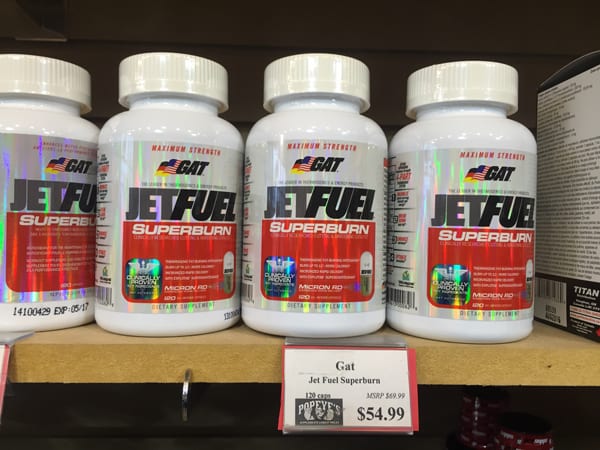Would you trust prescription medication that only contained the active ingredient 21-48% of the time? Would you trust medication that contained undisclosed ingredients 40% of the time? Not a chance? Then why do so many people trust unproven, unregulated supplements?
On February 3, 2015, the New York State Attorney General Eric T. Schneiderman issued a series of cease and desist orders to four large U.S. retailers for allegedly selling store brand herbal supplements that either could not be verified as containing the labeled ingredient or were found to contain ingredients not on the label. The letters went to four retailers: GNC; Target; Walgreens; and Walmart.
The orders were issued after DNA testing allegedly showed that overall, only 21% of the supplements tested actually contained the ingredients listed on the labels. The rest, 79%, either did not contain any of the listed ingredients or were contaminated with other material.
So what was in those supplements?
Researchers found rice, beans, pine, citrus, asparagus, primrose, wheat, dracaena (houseplant), and wild carrot. Some echinacea supplements contained ground bitter weed, a plant that can cause rashes, nausea and flatulence.
The recent U.S. investigation follows a 2013 Canadian study published in the journal BMC Medicine by researchers at the University of Guelph, who found a surprising gap between what was on the label and what was in the bottle of 44 herbal products sold by 12 un-named companies. Researchers analyzed the DNA of the ingredients and found that:
- only 48% of the products contained what was declared on the label
- 59% contained ingredients not stated on the label
- 33% had fillers and contaminants not declared
- several samples contained feverfew, which can interfere with the elimination of prescription drugs and should be avoided in pregnancy
- one product was contaminated with black walnut, which has nasty side effects
This isn’t just a simple problem of ‘buyer beware.’ Consumers can only trust what’s on the label, yet on both sides of the border, there are no regulatory requirements to ensure labels are accurate, demonstrate that the products work, or contain a consistent amount of ingredient from batch to batch.
After the cease and desist orders were issued in February, GNC announced they are instituting new testing procedures, a strong move to put quality control measures in place and hopefully set new industry standards for quality testing and transparent labelling. In GNC’s announcement about an agreement reached with the New York Attorney General (NYAG), GNC affirms that rigorous tests conducted in response to the NYAG’s inquiry provided evidence that the company’s products are safe, pure, properly labelled and in full compliance with regulatory requirements. The company is also expanding testing processes to provide consumers with greater confidence in GNC products.
Buyer beware: product recalls not fool-proof
I noticed this story in The New York Times published on April 7, 2015: Study Warns of Diet Supplement Dangers Kept Quiet by F.D.A. which reported that some popular weight-loss and workout supplements were found to contain a dangerous stimulant.
Dr. Pieter A. Cohen, assistant professor at Harvard Medical School and lead author of a new study said to The New York Times that some companies put amphetamine-like chemicals in weight loss and exercise supplements and hide them by labelling them as plants to make them seem like they are natural ingredients. BMPEA, a stimulant nearly identical to amphetamine, was found in products listed as containing acacia rigidula, a shrub native to southern Texas and Mexico.
The New York Times story said, “The Canadian health authorities in December called the chemical BMPEA a serious health risk and pulled supplements that contain it from store shelves.”
Did they? Yes.
Here is the Health Canada’s recall notice issued on December 23, 2014 for GAT JetFuel Superburn, lot 14100429, NPN 80041638.
So why is the product still for sale at a Popeye’s Supplements retail outlet in Ontario on April 8, 2015, more than three months after Health Canada’s recall notice? A recall only works to protect consumers if the product is actually removed from store shelves.
Product recalls are not fool-proof. What we really need is reliable testing and regulatory oversight before these products earn shelf space.
What are people really buying?
Much has been written in the past two years about herbal supplements like green coffee bean supplement, raspberry ketones and garcinia cambogia touted by Dr. Oz.
As John Oliver pointed out in his coverage of Dr. Oz’ visit to Congress to explain why he sells “a magic weight loss cure for every body type,” the real problem goes much deeper: regulatory authorities have no oversight investigate what’s in supplements until people get sick and too many people are looking to pop a magic bean to fix what ails them.
What’s really in supplements? The marketing copy touts a range of benefits that sound attractive to most of us: to lose weight, get cut, workout faster and harder, achieve long-lasting energy, prevent fatigue, increase stamina, target fat “trouble areas,” optimize concentration, build muscle, increase sexual performance, boost mood, support mental focus….” and there are many more claims, but you get the point.
Maybe what people are really buying is hope.


